In the dynamic landscape of education, where knowledge meets application, a profound shift is taking place—one that embraces experiential learning as the cornerstone of skill development and personal growth. Experiential learning transcends textbooks and classrooms, immersing learners in practical encounters that ignite a deeper understanding of concepts and their real-world implications. It’s where theory meets practice, offering a transformative journey that goes beyond traditional educational paradigms.
The Role of Experiential Learning in Skill Development
Imagine students not just memorizing facts but actively engaging with ideas, problem-solving through hands-on experiences, and honing critical thinking skills by navigating challenges firsthand. This is the power of experiential learning—a pedagogical approach that bridges the gap between theoretical knowledge and practical application.
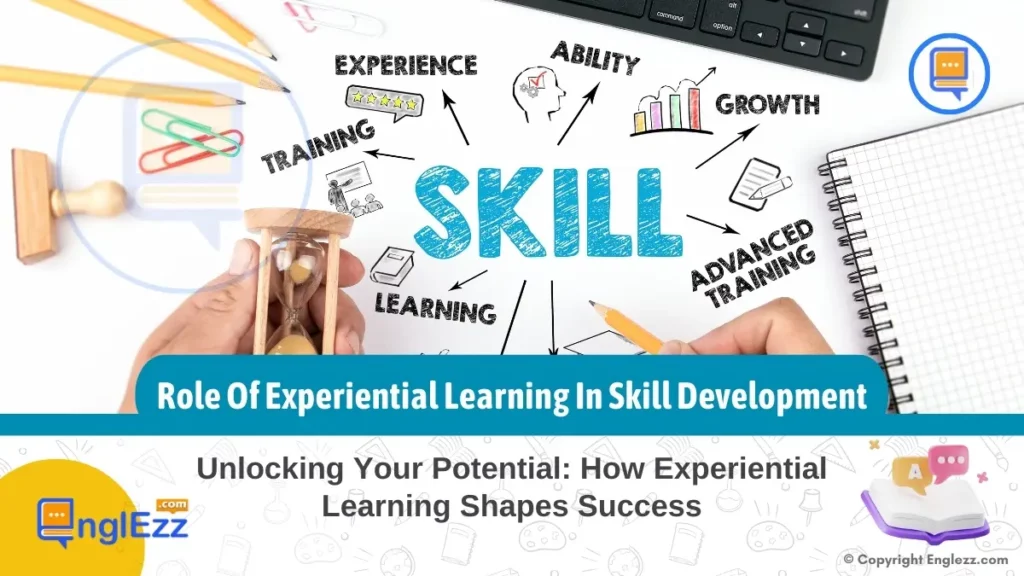
As we delve into the realms where education forges life skills, unlocking each individual’s potential takes shape through immersive encounters that resonate long after the lessons end. Join us on this enlightening exploration as we uncover how experiential learning shapes success and propels learners toward a future brimming with possibilities.
Understanding Experiential Learning
Experiential learning is a dynamic educational approach that emphasizes hands-on experiences as a fundamental component of skill development. It involves actively engaging with real-world situations to acquire knowledge, problem-solving abilities, and practical skills beyond traditional classroom settings. Unlike passive learning methods where students absorb information mainly through lectures and textbooks, experiential learning encourages active participation and reflection to enhance understanding and proficiency in various subjects.
In contrast to traditional classroom learning, which often focuses on theoretical concepts and memorization, experiential learning places learners at the center of their educational journey. By immersing students in interactive activities, experiments, simulations, or fieldwork, this approach deepens comprehension, stimulates critical thinking, and nurtures problem-solving skills in a more holistic manner. For instance, rather than solely studying the principles of physics from a textbook, students engaged in experiential learning might conduct experiments to observe scientific phenomena firsthand, fostering a deeper appreciation for the subject matter.
One of the key benefits of experiential learning lies in its ability to cultivate critical thinking and problem-solving skills crucial for success in academic pursuits and professional endeavors. By confronting real-world challenges and applying theoretical knowledge in practical scenarios, learners develop the capacity to analyze complex issues, innovate solutions, and adapt to evolving circumstances effectively. This active engagement not only enhances intellectual growth but also fosters resilience and creativity—qualities essential for navigating today’s rapidly changing job market and global landscape of opportunities.
Types of Experiential Learning
Experiential learning takes many forms, each offering unique opportunities for growth and development beyond the traditional classroom setting. Internships provide students with firsthand exposure to real-world work environments, allowing them to apply theoretical knowledge in practice under the guidance of experienced professionals. For example, a student studying marketing might intern at a local agency, where they can create marketing strategies, analyze market trends, and collaborate with a team on actual campaigns. This hands-on experience not only enhances their understanding of industry practices but also helps them build a valuable network of contacts for future career endeavors.
Volunteer Work
Volunteer work is another impactful form of experiential learning that goes beyond personal development to benefit society as a whole. Through volunteering, students engage in meaningful activities that cultivate essential soft skills like empathy, communication, and teamwork. Whether it’s organizing community events, working with underprivileged populations, or participating in environmental conservation projects, volunteering offers invaluable experiences that shape individuals into compassionate and socially responsible citizens. For instance, students involved in animal shelter volunteer programs not only learn about animal care but also develop empathy and teamwork skills by collaborating with other volunteers towards a common cause.
Travel Experiences
Travel experiences represent a dynamic form of experiential learning that broadens horizons and fosters cultural awareness. By immersing themselves in new environments, students gain insights into diverse perspectives, traditions, and ways of life around the globe. Travel opportunities provide invaluable lessons in adaptability, communication, and intercultural competence through interactions with people from different backgrounds. For example, participating in an exchange program allows students to study abroad and experience firsthand the nuances of a foreign culture while honing language skills and building international friendships. Such experiences not only enrich their worldview but also equip them with invaluable skills for navigating an increasingly interconnected global society.
Project-Based Learning: Cultivating Essential Skills for Real-World Success
Project-based learning (PBL) stands out as a key pillar of experiential education, offering students a dynamic platform to apply classroom knowledge in practical scenarios. By engaging in collaborative projects that mirror actual challenges faced in various industries, students not only deepen their understanding of academic concepts but also develop vital skills essential for success beyond the classroom. Through PBL, students are encouraged to think creatively, innovate solutions, and adapt to changing circumstances, fostering a mindset crucial for navigating the complexities of the modern world.
In project-based assignments, students often find themselves immersed in real-world simulations that require them to explore unconventional approaches and generate innovative solutions. By tackling these tasks, learners hone their creativity and critical thinking abilities, preparing them to address multifaceted problems with confidence and ingenuity. Moreover, PBL fosters adaptability by exposing students to diverse perspectives within a structured educational environment, equipping them with the resilience needed to thrive in rapidly evolving professional landscapes.

One of the most significant benefits of project-based learning is its capacity to nurture time management and leadership skills among students. As they collaborate on complex tasks that demand coordination and organization, individuals learn how to allocate resources efficiently, meet deadlines effectively, and lead teams towards common goals.
Through these experiences, students not only enhance their capacities for efficient project execution but also develop valuable interpersonal skills that are indispensable for effective teamwork and leadership roles in the future. In essence, project-based learning serves as a catalyst for holistic skill development by immersing students in hands-on experiences that transcend traditional classroom boundaries.
Integrating Experiential Learning into Traditional Education
In today’s educational landscape, the integration of experiential learning initiatives alongside traditional teaching methods is increasingly recognized as a vital component in fostering well-rounded skill development among students. By blending theoretical knowledge with practical application, educators can create a dynamic learning environment that nurtures both academic excellence and real-world proficiency.
For instance, science classes can come alive through hands-on experiments that allow students to apply theoretical concepts while grasping the practical implications of scientific principles. This approach not only deepens understanding but also sparks curiosity and engagement in an interactive way.
To enhance student engagement further, teachers are incorporating experiential elements into their lesson plans across various subjects. For example, history lessons may involve role-playing activities that immerse students in different historical eras, encouraging them to analyze events from multiple perspectives while developing empathy and critical thinking skills. By integrating such engaging experiences into the curriculum, educators can cater to diverse learning styles and inspire a passion for lifelong learning. Moreover, when students actively participate in their education through experiential means, they are more likely to retain knowledge and develop a deeper appreciation for the subject matter.
An essential aspect of successfully integrating experiential learning into traditional education lies in the role of educators as facilitators of these immersive experiences. Teachers play a pivotal role in guiding students through hands-on projects, providing mentorship during internships, or structuring collaborative assignments that mirror real-world challenges. Through their guidance and support, educators not only empower students to apply classroom learning in practical settings but also instill essential soft skills such as teamwork, communication, and problem-solving.
Ultimately, by embracing experiential learning within traditional educational frameworks with dedicated educator involvement, schools can nurture well-rounded individuals equipped with the skills needed for success in an ever-evolving world.
Impact on Skill Development
Experiential learning plays a pivotal role in fostering transferable skills essential for success across diverse fields. Unlike traditional classroom settings that primarily focus on theoretical knowledge, experiential learning equips individuals with practical skills that are directly applicable in real-world scenarios. By engaging in hands-on experiences such as internships, volunteer work, and project-based assignments, students develop critical thinking, problem-solving abilities, and adaptability – qualities highly valued by employers in today’s competitive job market.
One significant aspect of experiential learning is its ability to bridge the gap between academic knowledge and workplace readiness. While textbooks offer valuable information, experiential learning allows individuals to apply this knowledge in authentic contexts, preparing them for the complexities of actual work environments. For instance, a student participating in an engineering internship not only gains technical expertise but also learns about teamwork dynamics and effective communication – skills that are indispensable for professional success beyond academia.
Moreover, practical learning opportunities nurture self-confidence, resilience, and communication skills among learners. When students engage in hands-on projects or activities that require them to navigate challenges independently or collaborate with peers, they develop a sense of self-assurance and perseverance. These experiences not only enhance their confidence but also equip them with the ability to effectively convey ideas and collaborate with others – vital competencies in personal growth and career advancement.
In conclusion, experiential learning goes beyond textbook knowledge to cultivate a holistic skill set crucial for thriving in various professional domains. By immersing individuals in practical experiences that mirror real-life situations, this approach prepares them for the complexities of the modern workforce while nurturing invaluable qualities like self-confidence and effective communication. Embracing experiential learning paves the way for individuals to unlock their true potential and shape their paths toward success with a well-rounded skill set honed through hands-on practice.
Parental Support for Experiential Learning
Parents play a crucial role in the development of their children, not only academically but also in shaping their overall growth. Encouraging experiential learning activities outside the traditional classroom setting can greatly benefit a child’s educational journey. By engaging in real-world experiences such as community service projects, internships, or cultural exchanges, children gain practical skills and valuable insights that go beyond textbook knowledge. As parents actively support and participate in these activities, they enhance their child’s learning experience by providing context and encouragement along the way.
Empowering parents to recognize the significance of real-world experiences in their child’s holistic development is key to fostering a well-rounded individual. When parents understand the value of hands-on learning opportunities in nurturing skills like problem-solving, adaptability, and communication, they are more likely to actively seek out and support such experiences for their children. By highlighting how experiential learning complements academic learning and contributes to long-term success, parents can make informed decisions about the types of extracurricular activities that will best serve their child’s growth.
Collaboration between educators and parents is essential in aligning formal education with extracurricular experiential opportunities. When teachers and parents work together to identify areas where practical experiences can enhance theoretical knowledge, students benefit from a cohesive learning approach that bridges concepts with real-life applications. This collaboration can involve organizing field trips related to classroom topics, coordinating guest speakers who bring industry expertise into the school environment, or supporting students in pursuing passion projects that align with their interests and career aspirations. Through open communication and shared goals, parents and educators can create a supportive ecosystem that maximizes the potential for students to thrive both inside and outside the classroom.
Empowering Educators Through Experiential Teaching Methods
In the realm of education, empowering educators with the tools and knowledge to integrate experiential learning into their teaching practices is paramount for student success. Professional development programs play a vital role in equipping teachers with innovative methodologies that transcend traditional classroom boundaries. For example, workshops focusing on project-based learning can inspire educators to design interactive assignments that mimic real-world scenarios, fostering critical thinking and problem-solving skills among students. By immersing teachers in experiential training, they become adept at creating dynamic learning environments that cater to diverse learning styles and abilities.
Furthermore, promoting collaborative initiatives among educators can amplify the impact of experiential teaching methods. Peer-to-peer learning sessions where teachers share successful strategies and exchange best practices enhance the overall educational landscape. By encouraging a culture of continuous growth and mutual support within educational communities, teachers can harness the collective expertise to refine their approach towards experiential learning methodologies. This collaborative spirit not only benefits educators but also enriches the educational experience for students by ensuring consistent implementation of hands-on approaches across various subjects and grade levels.
Enhancing teacher-student relationships through experiential teaching methods goes beyond just imparting knowledge; it cultivates a deep sense of engagement and connection in the classroom. When educators leverage interactive activities like role-playing simulations or outdoor experiments, they create memorable learning experiences that spark curiosity and enthusiasm among students. These hands-on approaches not only make learning enjoyable but also foster trust and understanding between teachers and learners. By prioritizing experiential elements in lesson plans, educators personalize education, making it relevant and meaningful for each student’s unique journey towards academic excellence.
Overcoming Challenges in Implementing Experiential Learning
In the pursuit of incorporating experiential learning into educational systems, educators often come across a myriad of challenges that can hinder the seamless integration of hands-on experiences. One significant obstacle is the limitation of resources within schools. From budget constraints to access to necessary equipment or spaces, schools may find it challenging to provide diverse experiential opportunities for students. Creative solutions such as seeking community partnerships, utilizing shared resources among schools, and applying for grants can help mitigate these resource constraints and make experiential learning more accessible to all students.
As technology continues to influence every facet of our lives, educators are realizing its potential in facilitating virtual experiential learning experiences. Virtual reality simulations, online collaborative platforms, and interactive digital tools offer innovative ways to engage students in practical scenarios regardless of physical limitations. By embracing technology as a companion in experiential learning endeavors, educators can create immersive experiences that transcend traditional classroom boundaries and provide students with valuable skills and insights.
Advocating for policy changes at institutional and governmental levels is crucial in fostering a culture that values and supports the integration of hands-on practices within educational frameworks. This advocacy involves highlighting the benefits of experiential learning on student development, employability, and overall academic success. By working together with policymakers to incorporate mandates for experiential learning components in curricula, educational institutions can ensure every student has access to enriching real-world experiences that complement their academic journey and equip them with vital life skills.
Overcoming challenges in implementing experiential learning requires a collective effort from educators, administrators, parents, policymakers, and communities alike. By addressing resource limitations creatively, leveraging technology effectively, and advocating for supportive policies, the educational landscape can truly embrace the transformative power of hands-on experiences in shaping well-rounded individuals prepared for success in an ever-evolving world.
Embracing Growth Through Experientially Shaped Success
As we reflect on the profound impact of experiential learning in shaping not just academic success, but holistic skill development, it becomes evident that embracing growth through hands-on experiences is key to unlocking one’s full potential. The journey towards personal and professional fulfillment is enriched by real-world applications of knowledge, fostering critical thinking, problem-solving abilities, and essential soft skills like collaboration and adaptability. By integrating experiential learning approaches into educational frameworks, we pave the way for students to thrive in an ever-evolving landscape where practical competencies are as vital as theoretical understanding.
The transformative power of experiential learning lies not only in bridging the gap between theory and practice but also in nurturing a generation of individuals equipped with resilience, creativity, and a profound sense of self-efficacy. As we continue to champion innovative teaching methodologies that prioritize hands-on engagement and real-world relevance, we participate in a paradigm shift towards education that not only imparts knowledge but empowers learners to navigate complexities with confidence.
Let us embark on this journey together, embracing growth through experientially shaped success and inspiring generations to come with the limitless possibilities that experiential learning offers for personal and professional advancement.

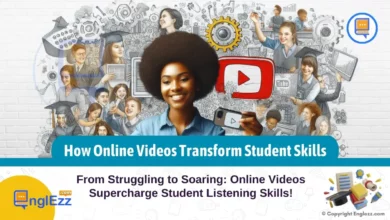

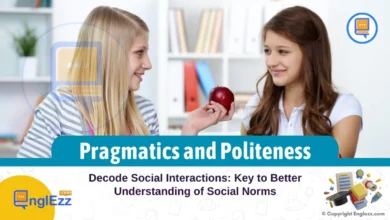



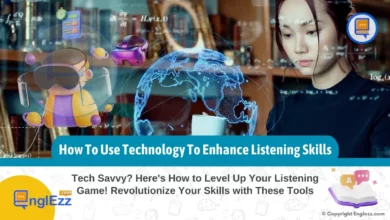
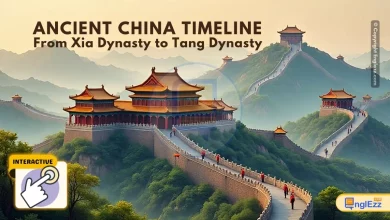
📚🌟 Check out the transformative power of experiential learning in skill development at EnglEzz! 🚀 Discover how real-world experiences can shape success. Read more at:
🌍
https://lnkd.in/dnzCcZg5
.
hashtag#Education hashtag#SkillDevelopment hashtag#ExperientialLearning hashtag#PersonalGrowth hashtag#SuccessPath hashtag#RealWorldExpertise hashtag#Empowerment hashtag#Innovation hashtag#LifelongLearning